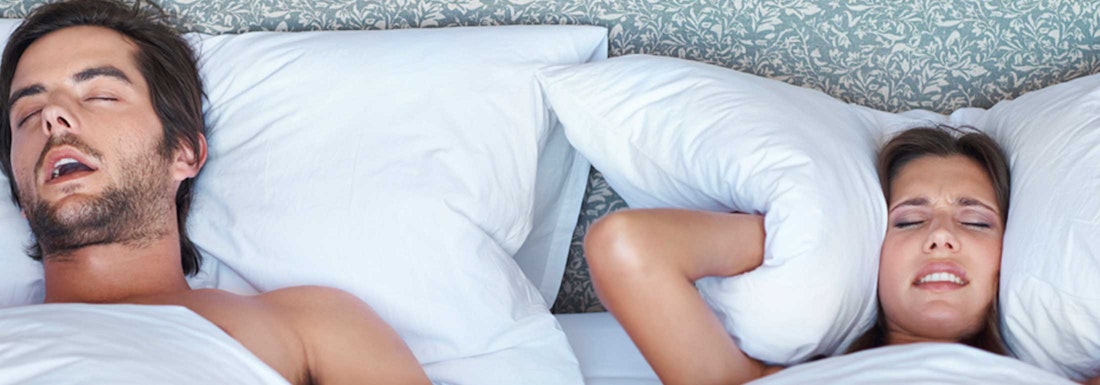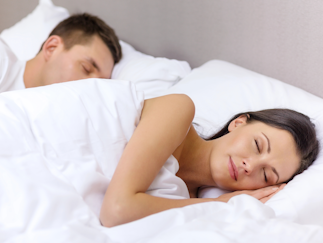13 Oct 2025

How To Solve The Biggest Problems With Sleep
04 Feb 2022
We’ve all been there. It’s 2AM, you need to be up early in the morning, however, you just can’t sleep. What is the problem? From time-to-time, we all suffer from disrupted sleep. The good news is that there’s normally always a solution, we just need to find it. Perhaps you’re constantly waking up in the middle of the night or maybe it’s not you, maybe it’s your partner’s constant snoring which is the problem. We’ve rounded up the biggest problems with sleep and how you can solve them.
Middle-Of-The-Night Waking
If you constantly find yourself waking up in the middle of the night, you might be relieved to know that you’re not alone. In fact, nobody sleeps through the night. We experience on average a total of 4 to 6 nocturnal awakenings per night. However, you should be able to go back to sleep. If you’re waking up because you need the toilet, keep a dim torch by your bedside and use this for lighting. Don’t turn on the overhead light as this will stimulate your central nervous system. If you find yourself waking up due to stress, keep a pen and paper close by so that you can write down all of your thoughts. As you write down each thought, imagine yourself setting aside the concern. Perhaps you don’t need the toilet, and you don’t feel stressed, and yet you simply can’t fall back to sleep. Focus on your breathing technique and relax methodically. Focus on your feet, tense and relax the muscles, then move your way up your calves, working your way up your body. By the time you’ve reached your head and neck area, you should have banished most of the bodily tension.
Frequent Trips to the Bathroom
Otherwise known as nocturia, waking in the night to use the bathroom is a common phenomenon. As many as 65% of older adults suffer from sleep deprivation from frequently using the bathroom. If you find yourself waking up 2 to 4 times a night to visit the bathroom, even when you limit your evening drinking, you should sip water with a pinch of salt just before going to bed. If you drink too much water without enough salt, your body may try to jettison some of the water, which may explain the evening wakenings. Our body needs the salt as well as the water to retain both.
Overheating
Perhaps you’re one of the many sufferers of night sweats. Overheating whilst you sleep is common for many, however, if you find yourself pooled in sweat on a regular basis, you might want to think about your surroundings. If you own an electric blanket, you should definitely think about ditching it. If you’re brave enough, take a cold shower before bedtime to cool your body temperature. If possible, sleep with your window open to allow a cool breeze into the room. If you live in a noisy environment, use earplugs to block out the noise. If you still find yourself sweating in the evening, check the tog rating of your duvet. The tog rating is a measure of a duvets thermal resistance of a unit area – the lower the tog rating, the less heat trapped within the duvet. If you’re wanting to remain cool as you sleep, use a 1.0 or 4.0 tog duvet.
Snoring
Finally, if the problem is with your partners snoring, you’ll be glad to know there are steps they can take to reduce the impact of their snoring. Suggest that they maintain a healthy weight and diet as studies show that overweight people are more prone to snoring. Drinking alcohol in the evening can also be a problem as it relaxes the muscles which make the back of the throat collapse more readily, which then causes snoring. If your partner smokes, see if they will cut down on their smoking. Cigarette smoke can irritate the lining of the nasal cavity and throat, causing swelling and catarrh. If the nasal passages become’s congested, it can be difficult to breathe through your nose because the airflow is decreased.


